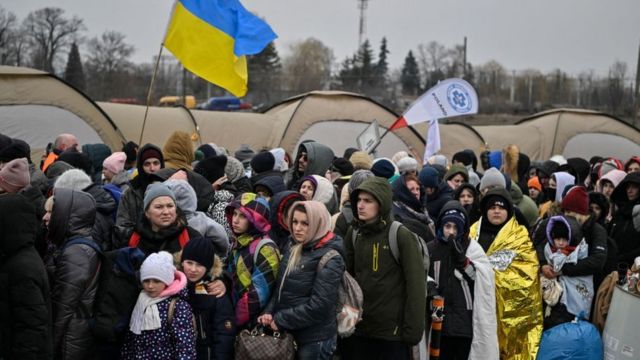Today, 20 June, is World Refugee Day. It is about the problems and challenges faced by people, who have been forced to flee their home country due to unforeseen circumstances. This year, the world’s attention is particularly focused on Ukrainians, who are seeking safety and protection in other countries from military aggression by Russia. It is already estimated, that the invasion by Russian troops has triggered the biggest wave of refugees since World War II.
According to the UN, the number of Ukrainians, who have gone abroad since the start of the war exceeds 8.2 million. Of these, some 6 million received temporary protection in European countries.
The largest number of Ukrainians have been sheltered by:
Poland – 1.6 million;
Germany – about 1 million;
Czech Republic – more than 520 thousand;
Great Britain – about 200 thousand;
Italy – about 178 thousand;
Spain – also about 178 thousand;
Romania – over 138 thousand.
Of the total number of refugees, 47% are women, most of them between 35 and 64 years old, 35% are children and 18% are adult men. Temporary protection in EU countries includes the right to temporary residence and access to housing, access to the labour market, access to health services, and social assistance. Children and adolescents can receive education.
In addition, citizens of Ukraine enjoy a visa-free regime in the EU. Once admitted to the EU, Ukrainians can travel freely within the EU for 90 days and choose the country, in which they wish to obtain temporary protection.
And in the US, a special programm for Ukrainian refugees, Unite for Ukraine, has been in place since 25 April 2022. Under this programm, it is allowed to come to the US and stay for up to 2 years with a so-called temporary password. Refugees to the US from Ukraine participating in the program must find a sponsor, who agrees to support them financially while they are in the country, and pay for their flight.
Many Ukrainians are already returning home, but the vast majority of those, who have left because of the war still remain abroad. The first wave of enthusiasm has subsided, but support for Ukrainians in the world is still high.
Pollste Institute recently conducted a study on the level of support for Ukrainians among Polish society. The results showed, that the index of solidarity remains high. When asked whether they should continue to help Ukrainians, 65% of respondents said yes. 35% of respondents were against it.
And the day before, more than 40 major global companies, including Amazon, Hilton and Marriott, announced they would help thousands of Ukrainian refugees in Europe find jobs, take courses or learn new professions, especially for women.
During the meeting, European Commission Vice-President Margaritis Schinas noted, that too many of the millions of refugees stranded in Europe are now unable to find work. This is despite the chronic shortage of skilled labour in the EU and the high level of education of Ukrainian displaced people.
“This unprecedented help from businesses across the continent is very important, it will help tens of thousands of Ukrainian women to provide for themselves and their families in Ukraine,” Schinas stressed.
And according to an academic study by US scientists, the influx of Ukrainian refugees into Europe will improve the GDP growth rate of EU countries.
“The economic impact of the Ukrainian refugee crisis in Europe will vary greatly depending on which part of the workforce you rely on,” said Luca David Opromolla, co-author of the study.
He also noted, that Ukrainian refugees do not now compete with low-skilled workers, but effectively complement them and make them more productive. Subsequently, competition between refugees and locals is possible. But already for positions with higher qualifications.


